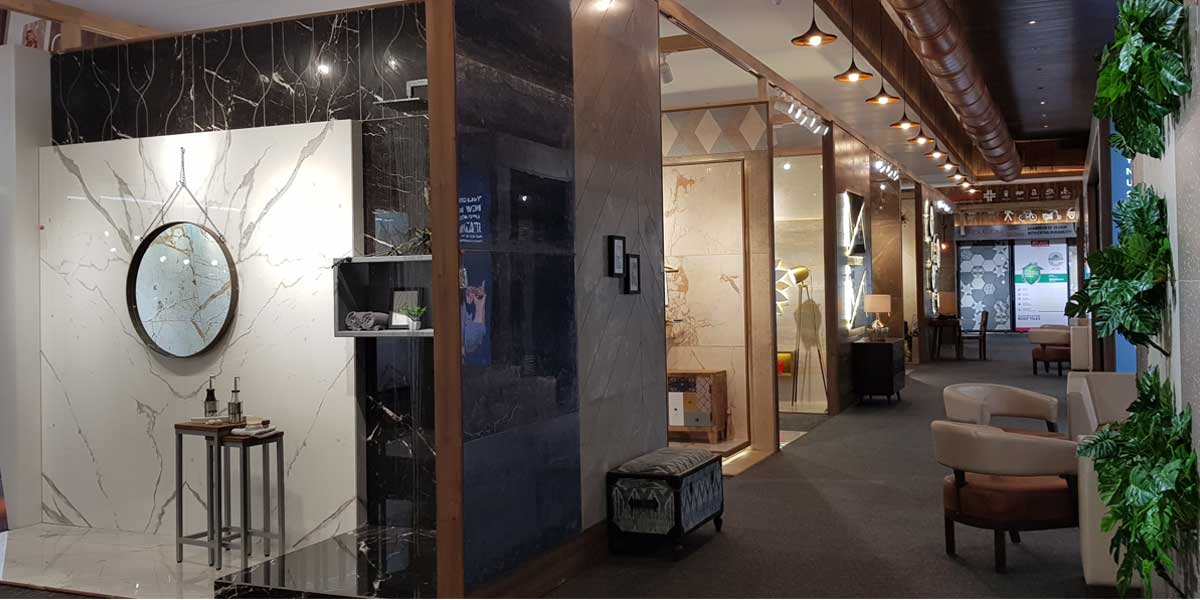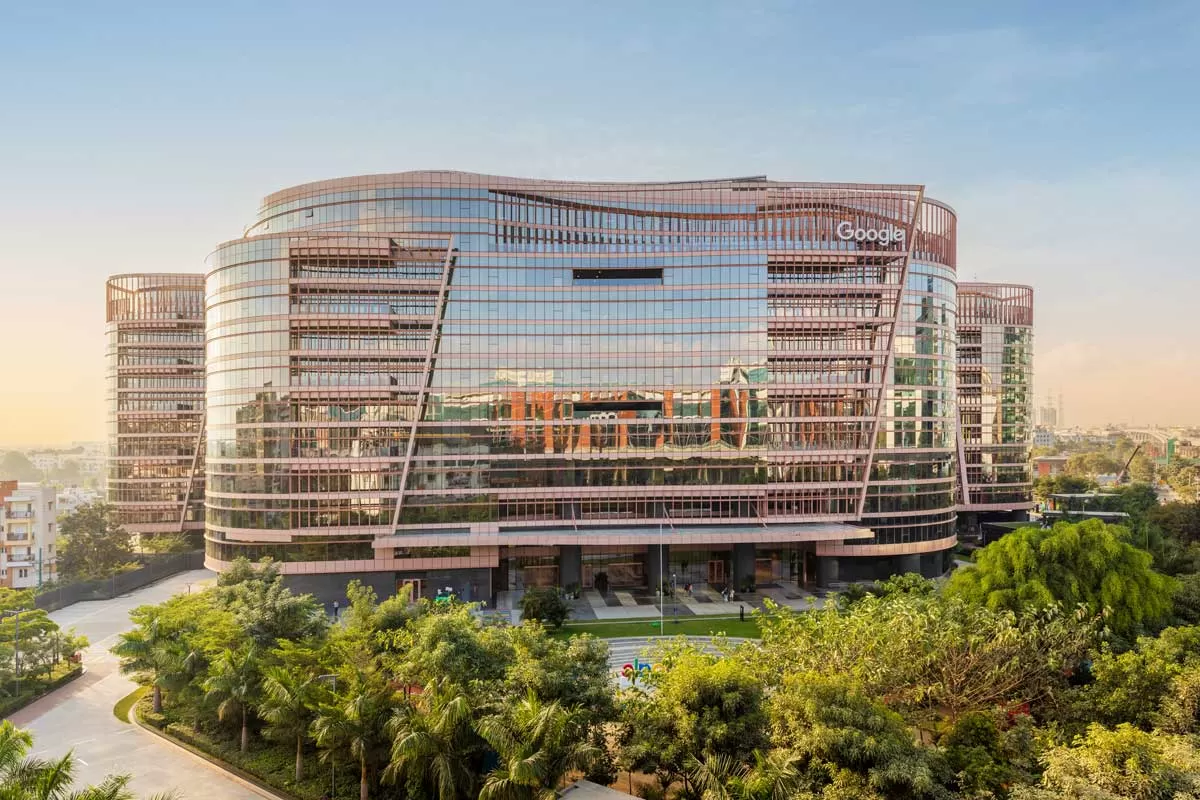The Indian tiles, sanitaryware and bathroom fittings market reached a value of $ 7,953 million in 2020, as per market research firm IMARC. The firm expects this market to grow at a CAGR of 9.30 per cent during 2021-2026.
To meet demands and trends in a pandemic time, the sanitaryware industry is witnessing a rapid transformation with numerous innovations.
Unmatched R&D
Most innovations involve improvement of process, productivity and cost reduction. H&R Johnson focused on research to create products that can add value to customers and society. As Dinesh Vyas, Advisor and Marketing Head, H&R Johnson India, Prism Johnson, tell us, “Twenty years ago, we educated the market to use slip-resistant tiles in wet areas. Then came the stain-free range of polished vitrified tiles. For hygiene, we launched our patented Germ-Free tiles and sanitaryware.” For safety, the firm’s R&D team in association with leading research institutes developed anti-static tiles; and for the environment, Cool-Roof tiles. Further, the team, in association with CSIR-AMPRI Institute, is now rolling out ‘Radiation Shielding Tiles’, which will replace the lead sheets used in x-ray rooms to protect people from hazardous radiation outside.
Evidently, the focus on hygiene will further increase as we have already seen several innovative offerings for contactless products. Even before the pandemic, Duravit had introduced what it calls the most advanced toilet in the world and the toilet of the future—Sensowash Starck F: a toilet that works from a smartphone. This shower-toilet generation by Duravit and Philippe Starck has two versions: SensoWash Starck f Plus and SensoWash Starck f Lite. Convenient to operate via a remote control and freely configurable via an app, they both include minimalist design for maximum shower-toilet comfort. “The technology within all components has undergone further development and has been reorganised to house all technology within the ceramic body,” shares Asutosh Shah, Managing Director, Duravit India. What’s more, the firm introduced a technology like HygieneGlaze, now the need of the hour, five years ago. “The time has come when one needs to understand all the touchpoints in the bathroom where multiple users operate,” adds Shah. The firm has also recently launched HygieneFlush, a flushing technique that optimally cleans the entire inner surface of the toilet.
Asian Granito India’s (AGL) R&D team vouches for its understanding of the requirements of the current pandemic and its health solutions. “We have developed new products like Tuff Guard anti-bacterial tiles, which are effective in killing bacteria by more than 99 per cent,” says Mukesh Patel, Managing Director, AGL. “This will fulfil demands from the healthcare and government sectors as well as homeowners.”
Cera Sanitaryware claims many firsts to its credit. It was the first brand to use natural gas for sanitaryware production, to introduce 30 (the widest range) of colours, and the first Indian company to manufacture a one-piece closet. “Our product Core Urinal is a 3-in-1 innovation; it has an integrated washbasin with urinal with which CERA’s sensor tap can be fitted,” says Deepshikha Khaitan, Joint Managing Director, Cera Sanitaryware. “Also water-saving, it is ideal for public wash areas like airports, malls, schools, etc.” In August 2020, in keeping with the need born from the pandemic, the firm also launched its foot-operated tap (with a foot lever).
Nano treatments
Nanotechnology has revolutionised the tile market in helping enhance its shelf life.
With the introduction of this technology, tiles got better quality surfaces and became shiny and stain-free. “AGL Double Charge and Soluble Salt surfaces come with additional nanotech treatments on surfaces,” explains Kamlesh Patel, Chairman & Managing Director, AGL. “With a wide range of applications, these tiles are durable and are known to enhance room brightness and are also comfortable for heavy traffic areas.”
CERA’s Grande-Large Format Slabs, Lucido-Glazed Vitrified Tiles and Refinito-Double Charge Tiles are entirely nano-coated and possess a protective layer that seals porous surface. “The nano coat keeps dirt and bacteria away from the floor,” avers Khaitan.
H&R Johnson has a patented silver-nano inorganic compound to make anti-microbial products; it was the first in India to launch germ-free tiles and sanitaryware, in 2010. Similarly, Johnson Marbonite created the first stain-free tiles using nano coating in the last decade. “We are working with non-tile industries such as paint, textile, plastic, etc, and helping them create new products with inbuilt hygiene,” shares Vyas.
Technology has it all
The pandemic has forced everyone to adopt technology.
“Thanks to new technology platforms, you are able to present everything to your client in a minute’s time,” says Shah. “During this tough time, we are also helping our traditional brick-and-mortar stores to make good use of digital platforms and to learn how online marketing can help them generate leads. We have also made our global display centre virtually available for customers to select products.”
COVID spells demand
The pandemic’s impact on the industry was largely felt from April to June 2020. Having said that, the Indian tiles sector received positive interest from global demand owing to the anti-China wave; hence tile exports increased, according to Kamlesh Patel. And so, AGL is aggressively focusing on global demand and increasing its footprint.
Exports were a big saviour for the industry, agrees Vyas. He adds, “As Morbi-based huge manufacturing capacity was happily serving the export market, all domestic players could achieve high volumes and growth.” Increased demand with a continued focus on cost and free cash flow helped almost all good companies to close FY20-21 on a positive note and with hope.
CASE STUDY - TILES
IDYLL - THE TURKISH BALCONY
Type of project: ResidentialProducts and brands used: Piccolo TilesType of tile selected for the project, and why: Piccolo tiles were ordered and arranged in a customised setting. Says Kumpal Vaid, Founder & Principal Designer, Purple Backyard, “For the balcony, we drew inspiration from Greek, Turkish and Moroccan styles, and its undulated cement walls, terracotta tiles, Mykonos blue elements and stark white seating serve to transport you to a Mediterranean island.Customisation as per client’s requirements: The grid is made to look like a Turkish tile setting by selecting the right colours and placing them in a customised manner. “We drew inspiration from Turkish and Moroccan styles and designed an oasis of relaxation for our client,” says Vaid. “She was eager to revamp her balcony, dining and living area for her family to optimise and enjoy, given our new normal.”Innovations applied: Piccolo does set customisation, “but with a help of the tile store, we were able to completely change the look and feel of these tiles and how they are generally used”.Project success: This new normal demands that our homes be multifunctional, comfortable spaces that we can really thrive in, and that was our priority when designing this space for a work-from-home mom with two kids and a full plate.
“We connected the indoor and outdoor areas with sliding glass shutters for an open format space that not only optically enlarges the living and dining areas but also brings the family closer to each other,” says Vaid. “Earthy tones and natural materials dominate the space for a fuss-free experience that embodies the essence of conscious living. The project turned out to be exactly like the Mediterranean oasis we envisioned, albeit nestled in the heart of Mumbai, and the client couldn’t be happier.”
CASE STUDY - SANITARYWARE
BELGADIA PALACE
Type of project: Boutique hotel
Size: 1,500 sq m
Client: The Bhanjdeos, the royal family of Baripada
Products and brands used: Kohler
Type of sanitaryware selected for the project, and why: “The selection had to resonate and restore the glorious era of the past, hence a vintage look in tiles was a prerequisite,” says Pooja Bihani, Founder & Principal Architect, Spaces & Design. “The thematic rooms further drive the colour selection of the tiles in their respective toilets. For the sanitaryware, though, we stuck to basic whites as the tiles were already loud. We chose self-rim basins to signify the Victorian era.
Customisation as per client’s requirements: Colour selection was made as per the thematic colour of each unique room. The narrative of each room had to be carried into the respective toilet.
Innovations applied: “While restoring the past era and glorifying the Belgadia Palace, the effort was to also simultaneously modernise each toilet,” shares Bihani. “Hence, vintage tiles are laid in an innovative manner with wall finishes above the usable area in a textured paint or a wallpapered surface.”
Project success: The restoration of the palace was a stupendous success all the way in terms of functionality as well as aesthetics. The primary aim was not to infuse a concept into the palace but to restore its own beauty from end to end. “We began with research on materials of that era—their life and sustainability; and parallelly of modern materials that could give us the look of the past but functionality of the current day,” says Bihani. “We started with these basics and joy in our hearts to bring Belgadia Palace back to its glory!”
CASE STUDY 1
Lulu Hyatt Regency Hotel, Thiruvananthapuram
Type of project: Five-star hotel
Offering: Toilet with HygieneGlaze technology during the pandemic
Products offered: Durastyle WC HygieneGlaze (145 numbers) and Durastyle electronic urinals by Duravit India
Innovations: Baked into the ceramic and extending from the interior to the rim of the toilet or urinal, HygieneGlaze is effective in the areas particularly susceptible to the accumulation of bacteria. It sets an unprecedented hygiene standard. After just six hours, 90 per cent of the bacteria growth, and after 24 hours, 99.9 per cent of the bacteria growth, is inhibited—an unprecedented level.
CASE STUDY 2
Godrej 24/Elements -Pune
Type of project: Residential
Offering: Tiles for 500 units
Products offered: Vitrified Super White Tiles Double Charge (55,000 sq m) by Asian Granito India (AGL)
Innovations: Owing to the growing challenges of the pandemic and the increased need to develop a safe environment, AGL came up with customised double-charge tiles as per the client’s requirement.
CASE STUDY 3
A residential project in Kolkata
Size: G+2 with a gamut of different spaces
Services offered: Creating the right tile combinations on the basis of aesthetics and functionality of tiles, and generating 3D views with multiple options.
Products offered: Johnson Porselano (Glazed Vitrified) - Royale Collection by H&R Johnson
Customisation done as per client’s requirements: Multiple tile combinations were tried in discussion with the client and the colour schemes, patterns and trendsetting combinations based on the best match were proposed.
Innovations: Contrast materials with polish and matt combinations were proposed keeping the required aesthetics and functionality in mind.
- SERAPHINA D’SOUZA


















